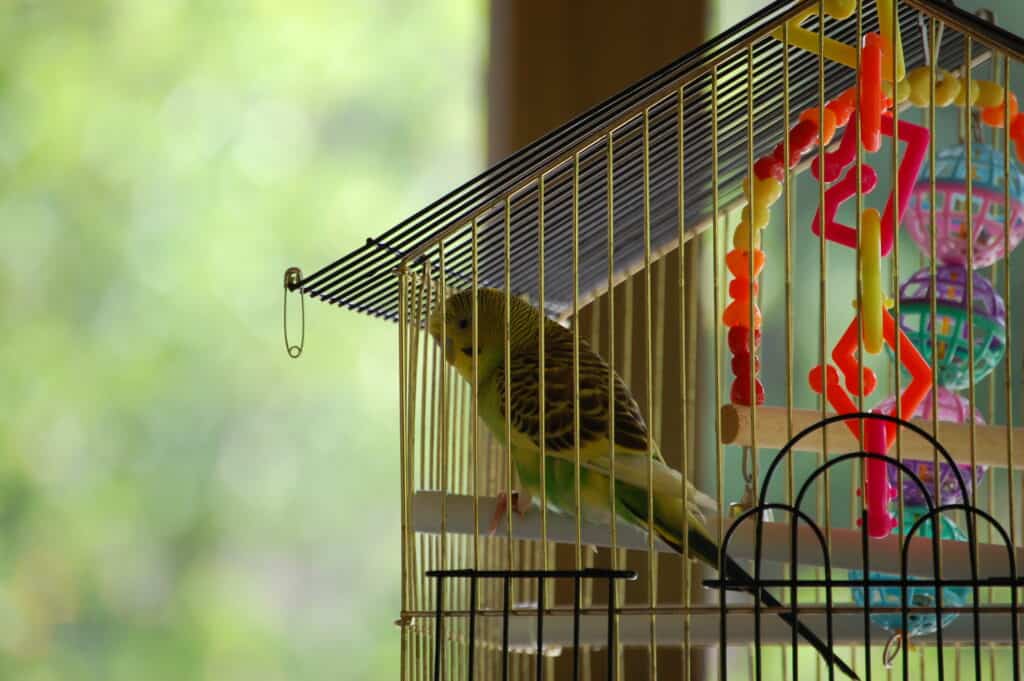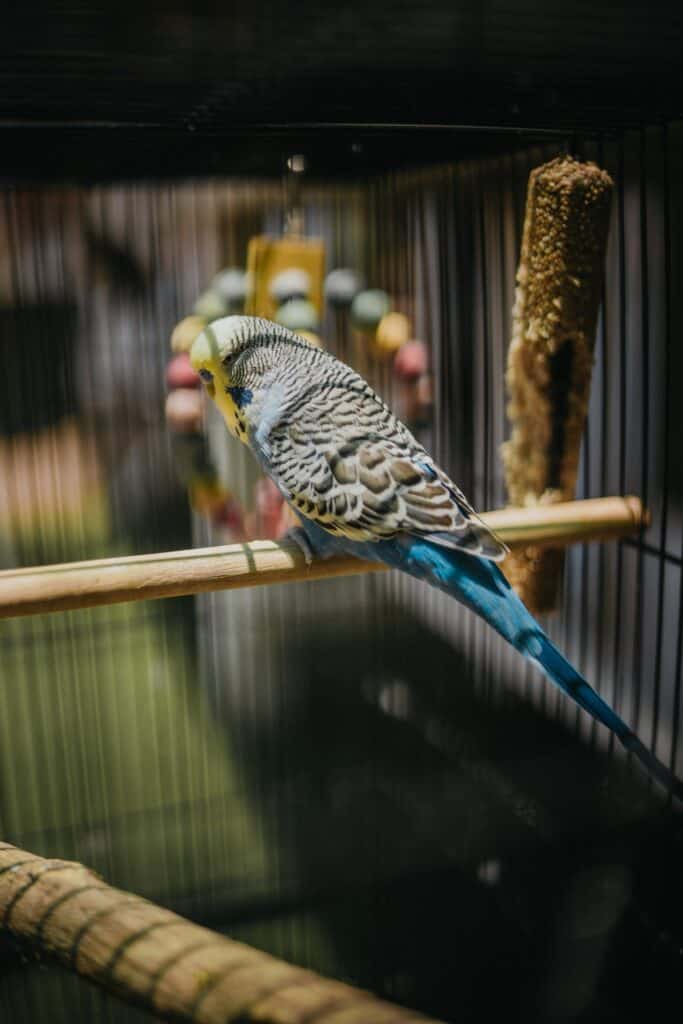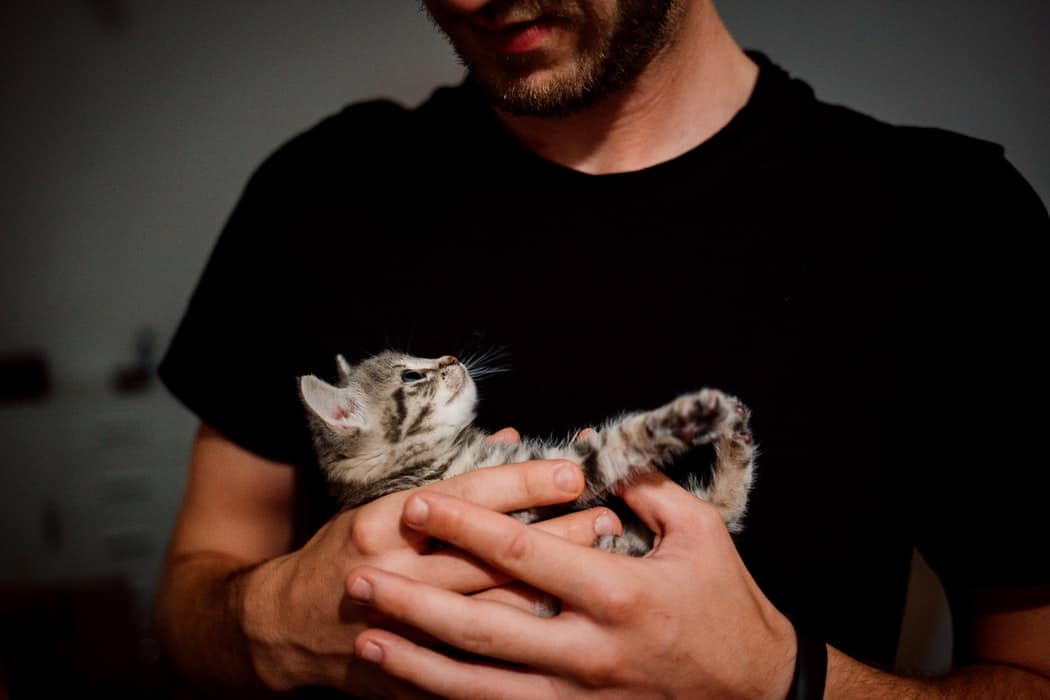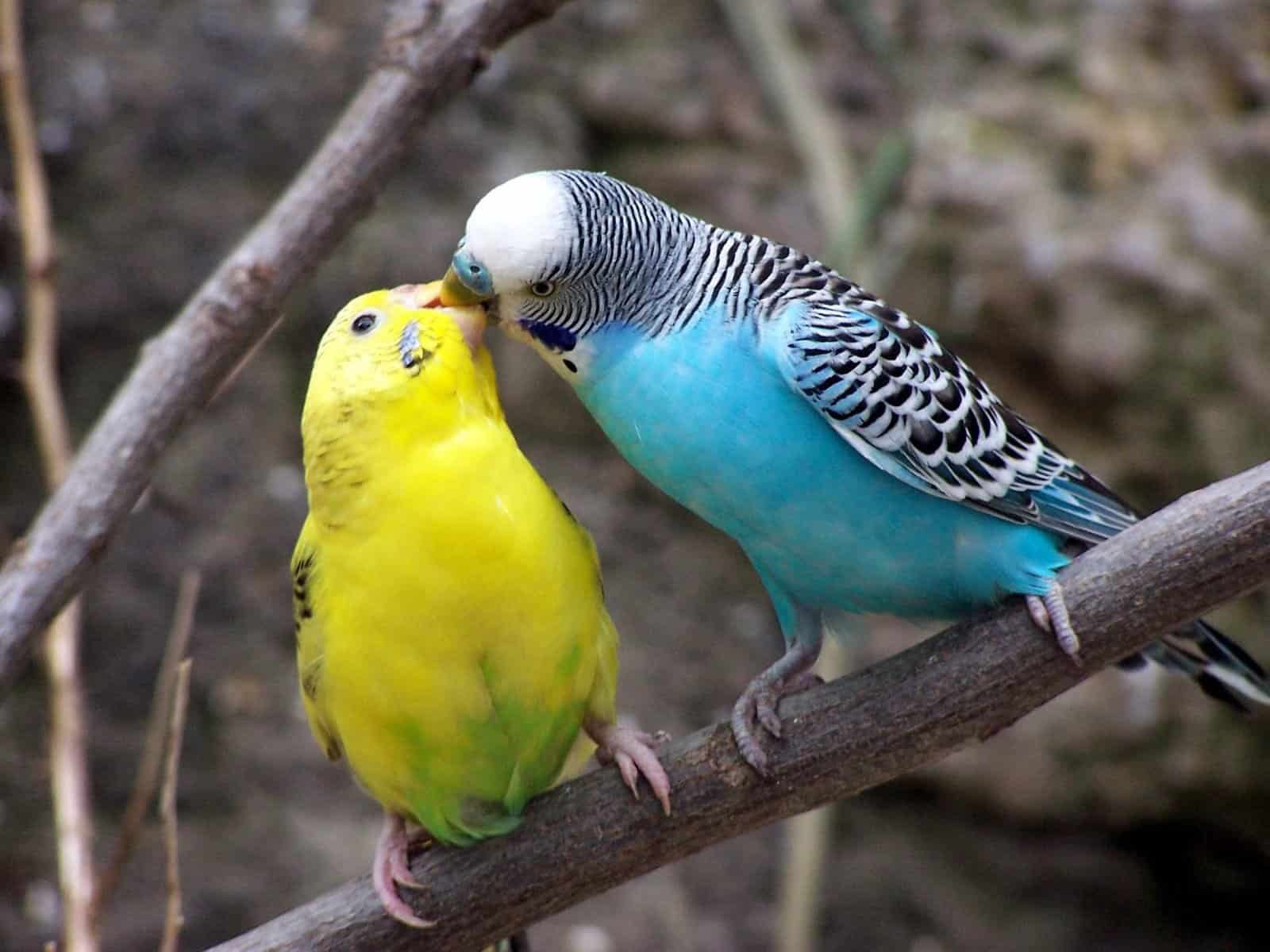Keeping a parakeet as a pet can be a wonderful experience. Parakeet’s constant little chitchat and sweet music can make your everyday life merry, and that is something to look forward to. A Parakeet is naturally playful and loves to socialize with the people around them.
They can provide a whole new kind of entertainment through their sounds that they are making. But have you ever wondered what they are trying to communicate? The study claims that the sound of your parakeet has its meaning. They are making a sound because they want to be recognized, and as pet owners, we should know what they are conveying.
Table of Contents
What do my parakeets’ sounds mean?

Interestingly, a parakeet is in a good mood if they are singing. Parakeet emits high tunes, with high and low notes. It is different from simple, monosyllable, and monotonous chatter. If you see your parakeet singing, it is good to watch and listen to them. Give praises afterward as they understand that you are happy through your facial expression. Usually, when a parakeet is angry, they produce sounds like “tsssssk”.
A parakeet usually makes a single note. When another parakeet heard it, they will absorb it and chirp together. It indicates how happy your parakeet is. Parakeets will also sing together. They talk in a high-pitched chirp and at a fast pace. If you notice that your parakeet keeps on chirping, they are chattering. If you have two or more parakeets in your home, they would likely chat with happy noise. A parakeet can scream too. Once they are hurt or see unusual things, they tend to overreact and produce exaggerated screams. In this case, always check your parakeets and try to make them calm. Parakeets will bite when they feel threatened. They can also feel scared by unfamiliar visitors or pets, which can cause them to bite.
For a fun fact, parakeets can mimic sounds. Male parakeets are likely to imitate the noise of certain things. They may appear in aimless chatter, or there could be times that your action triggers a particular sound. If you open the door, your parakeet may close it; if you pick up the phone and greet, hello, your parakeet may start holding your end of a conversation.
Understanding Your Parakeet’s Body Language
Body languages give more comprehensive hints to the parakeet’s mood. They can communicate through body language. You need to closely observe your bird’s behavior if you want to understand more of their unusual acts. To give ideas, here are their body languages that you need to understand.
- Tail flipping
Similar to your pet dogs, parakeets can flip their tails as a sign that they are glad to see you or if you are showing them that you are playing with their favorite toys.
- Budgie is foot tapping
Whenever they are tapping their feet, they are showing someone that it is their territory. It is a sign of dominance.
- The parakeet is hanging upside down
It is naturally part of their behavior. When they are doing this, it shows that they are happy and contented with their environment.
- Head shaking
If you are interacting with your parakeet and suddenly, they shake their head. They are showing that you don’t understand what they are trying to act.
- Wing flapping
Wing flapping or flying can be a sign of getting your attention. They can also lift their wings to stretch or to cool themselves.
- Quivering
Quivering may be a sign of fright, excitement, or it can be a part of breeding behavior.
- Raising their wings
A parakeet is moody. Sometimes they will be angry in the middle of a happy chat. If they raised their wings, they are telling off another parakeet. Surprisingly, they turned out to be in a different mood after you see them mad.
- Beak Grinding
Parakeets grind their beak before falling asleep. It is a sign of comfort. They are not causing themselves any harm by doing this.
- Bowing of head
Normally, when a parakeet is crouching with their head towards you, they are requesting for a gentle scratch.
- Eyes pinning
They can be adorable with their eyes pinning, but don’t be fooled. It can be a warning that if you provoked them, they would not hesitate to bite you.
Parakeets naturally use their body language to communicate. Sometimes, it is obvious what they are trying to convey that even other animals can interpret what they are doing. Interacting with your bird makes your relationship easier as they can see that you understand them. They will be vocal with their feelings and won’t hesitate to act through how they feel.
- Your budgie (a.k.a. parakeet) is resting on one leg, pushing its head under one wing
The bird is taking up a comfortable sleeping position. Do not disturb your budgie: apart from sleep at night, the birds also require rest at midday and a little “snooze.”
- The parakeet is preening itself
Budgies are very particular about thorough body hygiene, and in having healthy and clean plumage. Taking care of the plumage requires a lot of time: each feather is cleaned individually, adjusted, and returned to its original position.
- Parakeets are arguing
Disagreements among parakeets are settled with beak lashings and aerial attacks. The reasons for this are often food “treats” or a particular perch position. Although budgerigars are considered to be very peaceful, arguments can occur within a small flock; however, real injuries are extremely rare.
- Your budgie is smoothing its plumage, which makes it appear thinner
Your bird is afraid; something must have scared it. As potential prey, a budgerigar is always extremely alert. It will quickly assume a flight position so that it can take off instantly if need be, in order to escape from a potential predator. Therefore, you should investigate why your budgie feels threatened.
- The parakeets are “billing” each other, thus exchanging affection
“Billing” strengthens relationships and increases the sense of well-being in your parakeets. Budgerigars enjoy the company and contact with their siblings. Therefore, it is very important to provide adequate human attention, or to keep these gregarious birds sociable. (Source)
How do I know if my parakeet is stressed?

Parakeets, like people, maybe stressed and unhappy for some reason. Social and intelligent species like them need a lot of attention since they live in a birdcage. When they don’t receive the kind of affection that they need, they become bored and stressed.
Their environment has an impact on their reaction. They are sensitive to what they are seeing. We knew for a fact that parakeets are from nature. They love to see colorful sightseeing sceneries. Therefore, when you place them into a dark room and cover their cage, they can be frightened.
So how do you know if your parakeets are possibly stressed? Parakeets bite, scream, reduced their tone of vocalization, shows stereotypical behaviors such as pacing, toe-tapping, and head swinging if they are indicating a sign of stress and fear.
These are not usual for parakeets as they are known for being actively-fun social birds. So, if you see them acting strange lately, consult a veterinarian now. Vets will thoroughly examine their condition to make sure they aren’t hiding an underlying illness.
Are parakeets scared of loud noises?
Another reason why parakeets are stressed is because of loud noises. Loud noises affect parakeets in many ways. Some parakeets get stressed by exposure to their noisy environment, while others respond negatively to unexpected loud noises.
Your parakeet might stress out if they hear a vacuum cleaner. It can also indicate that your parakeet has no proper training. It’s a matter of trial and error to find out what noises bother your parakeet.
Parakeets are afraid of loud noise. They tend to overreact to the loud noise that indicates fear, distress, and pain. If you are living in a crowded environment, then maybe parakeets are not for you. In a worst-case scenario, parakeets can die due to loud noises as they can experience extreme fright that is bad for their mental health capacity. Make sure to give them a proper place to live that no one can harm them.
How do you tell if your parakeet likes you?
Many parakeets are naturally attached to their owners. With time and proper training, they can form a mutual bond that symbolizes love and affection. Taking care of a parakeet needs a lot of patience as they are picky with their needs. If you are taking care of a young parakeet, make sure to give them the attention that they are needing. Start interacting with them as early as possible to become familiar with your touch, voice, and body language.
There are many signs that your pet parakeet can show when they like you. Observe your bird’s body posture. The way parakeets act whenever you are present can tell how he feels in your presence. A parakeet is relaxed in a non-rigid posture shows that they feel happy and comfortable around you. Just like dogs, they are sweet and needy too. They crave your touch through the head-scratching. You can also tell if your parakeet likes you if they start hanging upside down. It is where birds feel safe and sound, as the position tends to leave the bird vulnerable. It just shows that they are comfortable with your presence.

Hezekiah is a pet lover since birth, according to his parents. He started writing for the Pets Checklist in 2020. He is fond of playing with and taking pictures of different friendly animals around his neighborhood. He loves to read and write articles about pets, science, and music.













